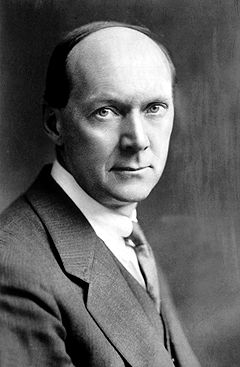Don Domanski, poet and artist (born 1950 in Sydney, NS; died 7 September 2020). Don Domanski was an acclaimed Maritime poet who published nine books of poetry. He received the Governor General’s Award, the Atlantic Poetry Prize and the Lieutenant Governor of Nova Scotia Masterworks Arts Award. He also served as the 2005 Ralph Gustafson Chair of Poetry at Malaspina University-College (now Vancouver Island University).
Early Life, Education and Career
Don Domanski was born and raised in Sydney, Cape Breton Island, Nova Scotia. His early immersion in Celtic culture and the large amounts of time he spent playing outdoors by himself as a child profoundly impacted his poetry and approach to language. He often spent time wandering the forests that bordered his home.
In 1973, he graduated from Dalhousie University with a degree in English. In 1975, he published his first collection of poetry, The Cape Breton Book of the Dead, establishing himself as an original new voice in Canadian poetry. The opening poem in Book of the Dead, which describes Lucifer watching over a tenement each night “only to be hauled back each morning / by City Council,” introduces a characteristic of Domanski’s poetry — the incorporation of the mythical and primeval into the everyday.
Over the next decade or so, Domanski solidified his reputation as an important and original poet in Canada with the publication of Heaven (1978), War in an Empty House (1982) and Hammerstroke (1986). These collections not only include the mythical and natural creatures introduced in Book of the Dead (such as flies, beetles, spiders, moths, Buddha, Lucifer, God and angels) but also introduce the themes of birth, death and regeneration that remain central to his work.
Mature Work
In 1991, Domanski’s fifth collection of poetry, Wolf-Ladder, was nominated for a Governor General’s Literary Award, as was his next, Stations of the Left Hand (1994). The poetry in Wolf-Ladder and Stations of the Left Hand continues in the metaphysical tradition of Domanski’s earlier work, weaving together elements of dark and light, the material and the spiritual, the primordial and the everyday. In a review of Wolf-Ladder in The Bloomsbury Review, John Bradley describes Domanski’s poetry as “earthy and astral, dark and buoyant, a cross between Robert Bly, Ted Hughes, and the Brothers Grimm.” In these two collections, Domanski showcases the startling and lucid metaphors he is famous for. He writes in “He Leans Homeward,” from Stations of the Left Hand, “The farmer's eyelids are drumskins / the rhythm is like a quick / reading of the phonebook…”
Domanski’s last two collections were published to wide critical acclaim. His 2007 collection, All Our Wonder Unavenged, was the Winner of the Governor General’s Award and The Atlantic Poetry Prize. His 2013 collection, Bite Down Little Whisper, was shortlisted for the Governor General’s Award in English-language poetry.
Influences and Inspiration
Domanski spoke often about his desire to explore our connection with the natural world through his poetry. In an interview with Open Book Ontario, he explained how roaming the forests of Cape Breton as a child made him feel “something spiritual, not religious in the sense of gods, angels, etc., but a real connection to the natural world. Somehow that translated into poetry and the desire to be a poet. It had spoken to me and I wanted to speak back to it and we’ve been having this conversation for over forty years now.” He also said that a source of inspiration for him is silence (inner, not outer), because it’s “a place from which to approach language.” The blank spaces that appear mid-line in his more recent poetry speak to that influence of silence.
In a lecture he gave while acting as the Ralph Gustafson Chair of Poetry at Malaspina University-College in 2005 (the lecture was later published as a chapbook by the Institute of Coastal Research), Domanski asserted that poetry is a creative process linked to the act of creation in the natural world; it has the capacity to reintroduce the modern reader, who is self-obsessed, with the luminous world in front of them.
Domanski said he was influenced by the work of Wallace Stevens and Dylan Thomas, as well as Chinese poets such as Li Po.
Other Activities
Domanski served on the faculty at The Banff Centre's Wired Writing Studio and was involved in the mentorship program of the Writers’ Federation of Nova Scotia. He was also an accomplished visual artist and exhibited his artwork in galleries in Halifax and internationally.

 Share on Facebook
Share on Facebook Share on X
Share on X Share by Email
Share by Email Share on Google Classroom
Share on Google Classroom



